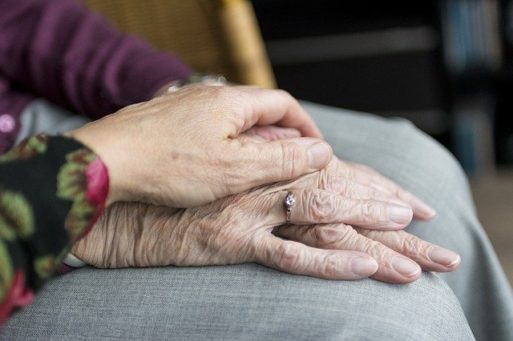
Health care workers were prioritized in the first COVID-19 vaccine rollout back in December, with thousands of doses administered to those who work in hospitals, nursing homes, and long-term care facilities. Meanwhile, many family caregivers — those who care for loved ones at home, typically without pay — are still wondering when they will be eligible for the vaccine.
According to Dr. Jennifer Olsen of the Rosalynn Carter Institute for Caregivers in an article in CalMatters, unpaid family caregivers are responsible for as much as 90% of home health care in the U.S. Many feel they can’t afford professional care for their loved ones, or feel uncomfortable bringing in outside help or placing their loved ones in a care facility due to COVID-19. An AARP survey found that over half of family caregivers feel they have no other option.
Caring for a loved one who is elderly, ill, or disabled can be a stressful and emotional experience. Often, this type of work offers no compensation and very little recognition. “In all but name, they’re essential health care workers, taking care of patients who are very sick, many of whom are completely reliant upon them, some of whom are dying,” said Katherine Ornstein, an associate professor of geriatrics and palliative medicine at Mount Sinai, in CNN Health.
The support and resources that many family caregivers rely on have also been hard to access during the pandemic. Caregiving can be isolating even under normal conditions, and with social distancing mandates in place, opportunities to leave the house and socialize are limited.

Credit: Sabine van Erp
Family caregivers often live in fear of spreading the virus to their loved one or becoming ill when there is no one to take their place. If a caregiver does contract COVID-19 and has to isolate from the person under their care, that person will likely have to be moved to a facility or placed under the care of a professional health worker — drawing on resources that are already stretched thin.
While many are advocating for family caregivers to receive the same priority as professional health workers, the often informal nature of the work poses certain logistical challenges. In Massachusetts, family caregivers are eligible to receive the vaccine if the person they are caring for is eligible — all they need to do is accompany that person to the vaccine site. Unfortunately, this has led many to take advantage of the system by offering free rides or even cash to seniors in exchange for posing as their caregivers at vaccine clinics.
These cases are troubling, certainly, but Massachusetts has also been praised for making an effort to address the vaccine gap for family caregivers. Few states have succeeded in doing the same, although the Veterans Health Administration announced in January that family caregivers enrolled in the Veteran Affairs’ Program of Comprehensive Assistance for Family Caregivers would be eligible for the vaccine along with their care recipients.
This still leaves thousands of caregivers in fear of contracting COVID-19 and the impact it could have on their loved ones’ care. With nursing homes and care facilities among the most high-risk environments for vulnerable populations, most family caregivers are left to wait and hope for the best.

 Family Caregivers Left Out of Vaccines for Health Care Workers
Family Caregivers Left Out of Vaccines for Health Care Workers



 “Help Me, Helen”
“Help Me, Helen”















